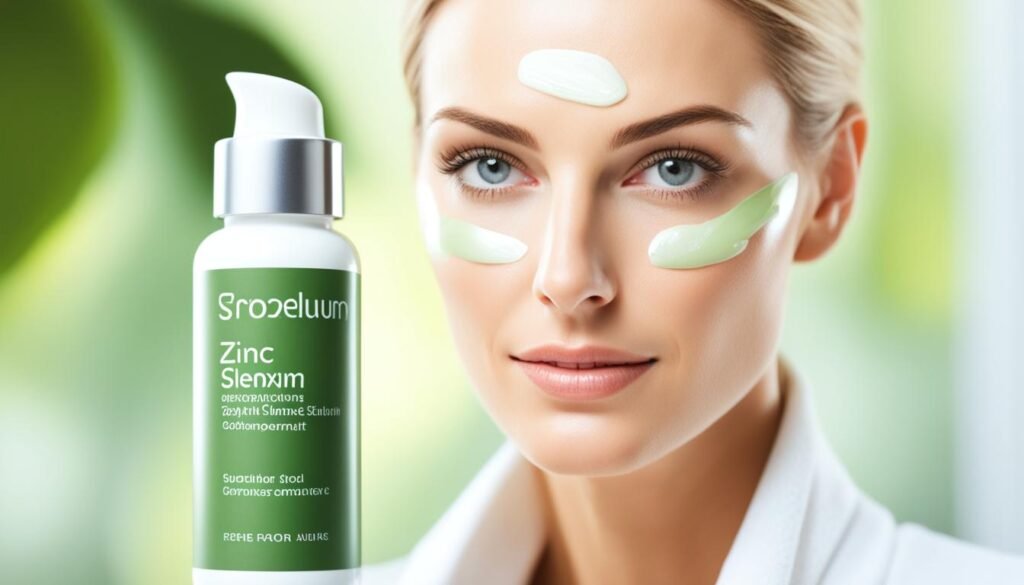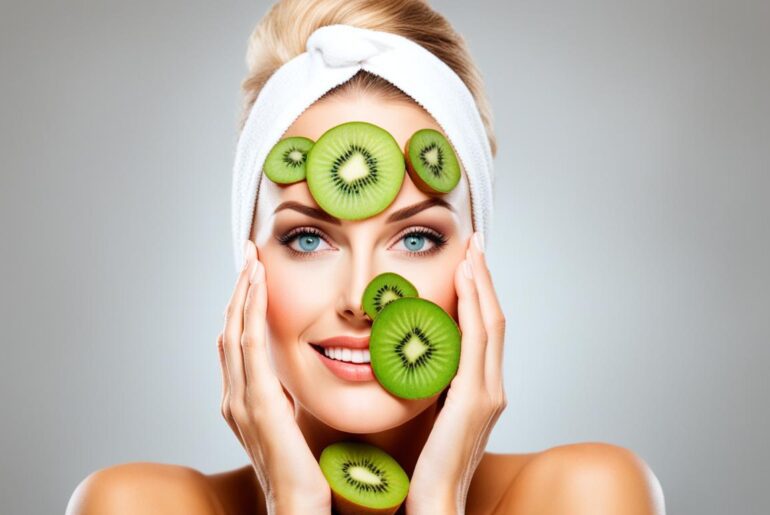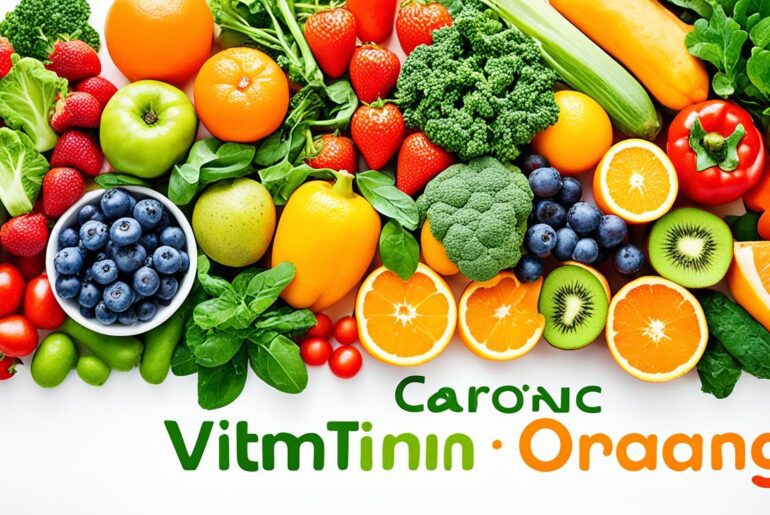Have you ever wondered what vitamins can actually improve the health of your skin? We all know that skincare involves a multitude of products and treatments, but how much do vitamins really play a role in achieving that healthy, glowing complexion?
In this article, I will explore the key vitamins that have been scientifically proven to improve skin health. From boosting collagen production to protecting against sun damage, these vitamins have the potential to transform your skin. Get ready to discover the power of vitamins for your skin!
Key Takeaways
- Vitamins play a crucial role in improving skin health by promoting collagen production, protecting against sun damage, and maintaining hydration.
- Vitamin C is essential for promoting collagen production, reducing wrinkles, and protecting against UV damage.
- Vitamin E acts as a powerful antioxidant, moisturizes the skin, reduces inflammation, and promotes wound healing.
- Vitamin A supports cell regeneration, collagen production, oil gland function, and provides protection against sunburn.
- Vitamin D is synthesized in the skin when exposed to sunlight and aids in cell growth, repair, and the treatment of certain skin conditions.
Vitamin C for Skin Health
Vitamin C is an essential nutrient for skin health. It plays a vital role in maintaining the skin’s firmness and elasticity by promoting collagen production. Additionally, vitamin C is a powerful antioxidant that protects the skin from free radicals and UV damage, which can cause premature aging.
Studies have shown that vitamin C can help reduce the appearance of wrinkles and fine lines, as well as promote faster wound healing. Its anti-inflammatory properties also contribute to a healthier complexion by reducing redness and irritation.
There are multiple ways to incorporate vitamin C into your skincare routine. One option is to include vitamin C-rich foods in your diet, such as citrus fruits, strawberries, and bell peppers. Alternatively, you can use skincare products that contain vitamin C, such as serums or creams.
Benefits of Vitamin C for Skin Health:
- Promotes collagen production, maintaining skin firmness and elasticity
- Protects against free radicals and UV damage
- Reduces the appearance of wrinkles and fine lines
- Promotes faster wound healing
- Reduces redness and irritation
| Vitamin C-Rich Foods | Recommended Daily Intake |
|---|---|
| Citrus fruits (orange, grapefruit, lemon) | 75-90 mg |
| Strawberries | 85 mg |
| Bell peppers | 95-152 mg |
| Kiwi | 74 mg |
| Papaya | 86 mg |
Including vitamin C-rich foods in your diet or using skincare products containing vitamin C can contribute to healthier, more vibrant skin.
Vitamin E for Skin Health

Vitamin E is another important vitamin for maintaining healthy skin. It acts as a powerful antioxidant, protecting the skin from oxidative stress and damage caused by UV radiation. Additionally, this vitamin helps nourish and moisturize the skin, reducing dryness and promoting a healthy complexion.
One of the key benefits of vitamin E is its ability to reduce inflammation in the skin. By neutralizing harmful free radicals and preventing the production of inflammatory molecules, vitamin E helps soothe irritated skin and can even improve conditions such as eczema and psoriasis.
Furthermore, vitamin E plays a crucial role in wound healing. It activates certain enzymes that facilitate the healing process, reduces scar formation, and promotes the growth of new healthy tissue. Whether it’s a minor cut, a surgical incision, or a skin injury, adequate vitamin E levels can aid in faster and more efficient healing.
The easiest way to incorporate vitamin E into your skincare routine is through your diet. Foods rich in this vitamin include nuts, seeds, avocados, and spinach. Alternatively, you can opt for vitamin E supplements if you have difficulty obtaining enough from your diet alone.
Remember, a balanced intake of nutrients is essential for optimal skin health. While vitamin E is beneficial, it’s important to consume a variety of vitamins and minerals to nourish your skin from within.
| Benefit | Explanation |
|---|---|
| Antioxidant Protection | Vitamin E protects the skin from oxidative stress and UV damage. |
| Moisturization | It helps hydrate the skin, reducing dryness and improving overall skin health. |
| Inflammation Reduction | Vitamin E has anti-inflammatory properties, reducing redness and irritation in the skin. |
| Wound Healing | It facilitates the healing process and promotes tissue regeneration. |
Vitamin A for Skin Health
Vitamin A is a crucial nutrient that plays a significant role in maintaining healthy skin. It is involved in cell regeneration and collagen production, which are essential for maintaining the skin’s structure and elasticity. Vitamin A also supports the oil glands in the skin, helping to keep the skin moisturized and preventing dryness.
One of the key benefits of vitamin A for skin health is its ability to protect against sun damage. It helps interrupt the breakdown of collagen caused by UV rays, reducing the risk of premature aging and providing some protection against sunburn.
Furthermore, vitamin A aids in wound healing by promoting the growth of new skin cells and supporting tissue repair. It can be beneficial for individuals recovering from skin injuries or undergoing certain dermatological treatments.
The Benefits of Vitamin A for Skin Health:
- Promotes cell regeneration and collagen production
- Protects against sun damage and reduces the risk of premature aging
- Supports oil gland function and prevents dryness
- Aids in wound healing and tissue repair
To incorporate more vitamin A into your diet, consider consuming foods that are rich in this nutrient. Leafy greens, carrots, sweet potatoes, and eggs are excellent sources of vitamin A. If you prefer to take supplements, consult with a healthcare professional to determine the right dosage and ensure they are suitable for your needs.
Remember, maintaining a balanced diet that includes a variety of nutrients is essential for overall skin health. Although vitamin A is beneficial, it is important to focus on a well-rounded approach to skincare and nourishment.
Continue reading to learn more about the other essential vitamins that contribute to skin health.
Vitamin D for Skin Health

Vitamin D is an essential nutrient for overall health, including skin health. It plays a vital role in cell growth and repair, contributing to the maintenance of healthy skin. One of the primary sources of vitamin D is sunlight. When exposed to sunlight, our skin synthesizes vitamin D. However, certain dietary sources and supplements can also help maintain adequate vitamin D levels for optimal skin health.
The Benefits of Vitamin D for Skin Health
Vitamin D offers various benefits that promote skin health. It can aid in the treatment of certain skin conditions like psoriasis by reducing inflammation and supporting immune function. Additionally, vitamin D promotes wound healing by stimulating the growth of new skin cells and maintaining the integrity of existing ones.
Vitamin D plays a crucial role in maintaining the health and vitality of our skin. Its ability to improve the treatment of certain skin conditions and aid in wound healing highlights its significance in skincare.
Getting Vitamin D from Sunlight
Sunlight is the primary source of vitamin D. When our skin is exposed to sunlight, it synthesizes vitamin D through a natural process. However, it’s essential to practice safe sun exposure to prevent skin damage from harmful UV rays. Spending a few minutes outdoors during peak sunlight hours can help your body produce vitamin D.
Dietary Sources of Vitamin D
In addition to sunlight, certain foods can provide vitamin D to support skin health. Fortified dairy products, such as milk and yogurt, are excellent sources of vitamin D. Fatty fish, such as salmon and mackerel, also contain significant amounts of vitamin D. Including these foods in your diet can contribute to maintaining adequate vitamin D levels for healthy skin.
Vitamin D Supplements
In cases where sunlight and dietary sources may not provide sufficient amounts of vitamin D, supplements can be an option. Consult with a healthcare professional to determine if vitamin D supplements are necessary for your specific needs and to ensure you take the proper dosage.
Vitamin D and Skin Health
Vitamin D plays a crucial role in maintaining overall skin health. Its ability to promote wound healing and aid in the treatment of certain skin conditions underscores its significance in skincare. While sunlight is the primary source of vitamin D, fortified foods and supplements can also contribute to maintaining adequate vitamin D levels for healthier skin.
B-Complex Vitamins for Skin Health
The B-complex vitamins, including B1, B2, B3, B5, B6, B7, B9, and B12, all contribute to skin health in various ways. They help maintain skin barrier function, promote collagen synthesis, reduce inflammation, and enhance skin hydration.
Including foods rich in B-complex vitamins, such as whole grains, nuts, and leafy greens, or taking B-complex supplements can support healthy skin.
| Vitamin | Role in Skin Health | Food Sources |
|---|---|---|
| B1 (Thiamine) | Protects skin from oxidative damage | Pork, whole grains, legumes |
| B2 (Riboflavin) | Promotes skin hydration | Dairy products, eggs, leafy greens |
| B3 (Niacin) | Enhances skin barrier function | Poultry, fish, peanuts, mushrooms |
| B5 (Pantothenic acid) | Improves skin moisture retention | Mushrooms, avocados, chicken |
| B6 (Pyridoxine) | Reduces inflammation and acne | Salmon, chicken, bananas |
| B7 (Biotin) | Promotes healthy hair and nails | Eggs, almonds, sweet potatoes |
| B9 (Folate) | Aids in cell regeneration | Leafy greens, citrus fruits, beans |
| B12 (Cobalamin) | Supports red blood cell production for healthy skin | Meat, fish, dairy products |
Zinc and Selenium for Skin Health

Zinc and selenium are two minerals that play a vital role in maintaining skin health. Let’s take a closer look at how these minerals can benefit your skin:
Zinc
Zinc is known for its skin healing properties and its ability to maintain cell stability. It promotes the regeneration of new skin cells, helping to repair damaged tissue and accelerate wound healing. Additionally, zinc acts as a protective barrier against harmful UV rays, reducing the risk of photoaging and sunburn.
Including zinc-rich foods in your diet, such as legumes, nuts, and whole grains, can provide your skin with the necessary nutrients for optimal health. If you have a zinc deficiency or need an extra boost, zinc supplements can be beneficial. However, it’s important to consult with a healthcare professional before starting any new supplements.
Selenium
Selenium is an essential mineral that works in synergy with other antioxidants to protect the skin from oxidative damage. It helps neutralize free radicals, reducing inflammation and preventing premature aging. Additionally, selenium has been found to have a protective effect against skin cancer, making it an important nutrient for maintaining healthy skin.
Foods rich in selenium include fatty fish like salmon and sardines, Brazil nuts, and whole wheat products. Incorporating these selenium-rich foods into your diet can contribute to the overall health and vitality of your skin.
By ensuring an adequate intake of zinc and selenium through a balanced diet or appropriate supplementation, you can support your skin’s natural healing processes, protect against sun damage, and maintain a healthy, radiant complexion.
| Mineral | Benefits for Skin Health | Food Sources |
|---|---|---|
| Zinc | Promotes skin healing Maintains cell stability Protects against UV damage |
Legumes Nuts Whole grains |
| Selenium | Neutralizes free radicals Reduces inflammation Protects against skin cancer |
Fatty fish (salmon, sardines) Brazil nuts Whole wheat products |
Including these minerals in your skincare routine can have a positive impact on your skin’s health and appearance. However, it’s important to remember that a well-rounded, nutritious diet is key to maintaining overall skin health. Consult with a healthcare professional or dermatologist for personalized advice tailored to your specific needs.
Dietary Considerations for Skin Health

Apart from specific vitamins and minerals, maintaining a nutritious diet overall is crucial for healthy skin. Consuming a variety of fruits and vegetables provides important skin-friendly vitamins and antioxidants. Fatty fish, eggs, and flaxseeds offer omega-3 fatty acids, which are beneficial for skin health. Including foods like avocados and olive oil provides healthy fats that help moisturize the skin.
Consider speaking to a healthcare professional if you’re unsure about your nutrient intake and whether supplements are necessary.
Conclusion
Taking the right vitamins and minerals can greatly contribute to improving your skin health. However, it is important to remember that supplements should not replace a healthy and balanced diet. While supplements may offer benefits for specific skin conditions, they are generally not necessary for maintaining overall skin health.
To support optimal skin health, focus on consuming a well-rounded diet that includes a variety of fruits, vegetables, lean proteins, and healthy fats. These provide essential nutrients, vitamins, and antioxidants that nourish your skin from within.
If you have specific concerns about your skin or are unsure about your nutrient intake, it is always a good idea to consult with a healthcare professional. They can provide personalized advice and guidance to determine the best approach for your unique skin needs.
FAQ
Do vitamins improve skin health?
Yes, certain vitamins play a crucial role in improving skin health by promoting collagen production, protecting against sun damage, and maintaining hydration.
What are the best vitamins for skin health?
The key vitamins that can improve skin health are vitamin C, vitamin E, vitamin A, vitamin D, and the B-complex vitamins.
How does vitamin C improve skin health?
Vitamin C promotes collagen production, protects the skin from free radicals and UV damage, reduces the appearance of wrinkles, and promotes faster wound healing.
What is the role of vitamin E in skin health?
Vitamin E is a powerful antioxidant that protects the skin from oxidative stress and UV damage, helps moisturize the skin, reduces inflammation, and promotes wound healing.
How does vitamin A benefit the skin?
Vitamin A supports cell regeneration and collagen production, helps prevent sun damage and provides some protection against sunburn, supports oil gland function, and aids in wound healing.
What is the role of vitamin D in skin health?
Vitamin D is essential for overall health, including skin health. It helps with cell growth and repair, can treat certain skin conditions like psoriasis, and promotes wound healing.
How do B-complex vitamins contribute to skin health?
B-complex vitamins help maintain skin barrier function, promote collagen synthesis, reduce inflammation, and enhance skin hydration.
What are the benefits of zinc and selenium for skin health?
Zinc promotes skin healing, maintains cell stability, and has protective effects against UV damage. Selenium helps protect against skin cancer and works in synergy with other antioxidants.
Are there any dietary considerations for skin health?
Maintaining a nutritious diet overall is crucial for healthy skin. Consuming a variety of fruits, vegetables, whole grains, lean proteins, and healthy fats can provide important skin-friendly vitamins and antioxidants.
Should I take supplements for skin health?
While supplements may offer benefits for certain skin conditions, they are not usually necessary for maintaining overall skin health. Focus on consuming a well-balanced diet and consult with a healthcare professional if you have specific concerns.




